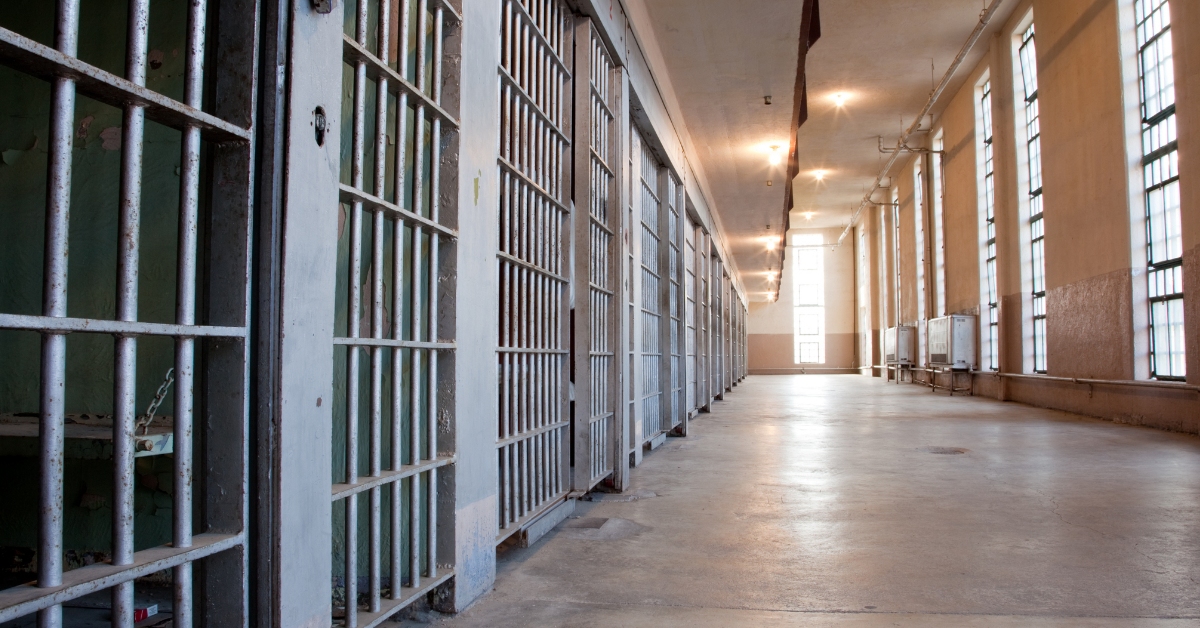The chief inspector for Scottish prisons has warned the number of people in custody is projected to soar in the next year, with overcrowding being a key factor.
His Majesty’s chief inspector of prisons for Scotland, Wendy Sinclair-Gieben, was appointed in 2018.
In her fifth annual report, released on Wednesday, Ms Sinclair-Gieben said in February 2019 the overall number of inmates spanning Scotland’s 15 prisons exceeded 8,000 for the first time since 2013.
She has estimated that over the next 12 months that will likely rise.
The inspector said the prison population was reduced for a number of years due to the Covid-19 pandemic.
She said that having now inspected all of Scotland’s prisons, “some progress has undeniably taken place”, but “several of my recommendations have also been made repeatedly”.
She said: “There is one particular issue that I and my predecessors have consistently reported on: the entrenched issue of overcrowding in Scotland’s prisons.
“Put simply, we send far too many people to prison for the limited accommodation and resourcing available to achieve rehabilitative change.”
She added: “The reason I and my predecessors have focused strongly on overcrowding is that it affects every part of the criminal justice system, in particular the risk to the community.
“If individuals do not have their risks and needs addressed in prison, the rate of recidivism will remain high, and at significant cost to the public purse.”
The inspector said it would be a “delight” to see men’s prison estates to match the improvements seen in women and children’s estates within the next five years.
She cited the new women’s prison at HMP Stirling, which opened in June 2023, adding Scotland “has the potential to lead the way in managing women in custody”.
The report states that, throughout 2023, GEOAmey, who provide transportation services for prisoners, experienced a staff shortage which had an impact on prisons.
Ms Sinclair-Gieben said: “GEOAmey experienced significant staffing challenges and we witnessed an inadequate service performance impacting heavily on prisons and prisoners with cancelled hospital appointments, inter-prison transfers, and late arrivals into prisons.
“If prisons are to continue to be an essential component of a successful justice system that is trusted by the public to keep them safe, the ambition must also be to go further.
“I am hopeful that many of the issues we have raised can be addressed and resolved.
“Scotland has demonstrated the ability to achieve significant justice reforms in the past.
“We now need to see the same commitment and focus to drive further reform with innovative thinking that can deliver a justice system Scotland deserves but still within an appropriate funding envelope.”
Finally, Ms Sinclair-Gieben said it would be a “travesty” if there is a delay in the arrival of HMP Glasgow and HMP Highland.
HMP Glasgow is set to replace HMP Barlinnie and is scheduled to open in 2026.
HMP Highland will replace HMP Inverness.
The prison was originally to open in 2020, but has since been pushed back to 2026.
Scottish Conservatives shadow justice secretary Russell Findlay MSP described the report as “damning”, stating it should serve as a “wake-up call for SNP ministers”.
He added: “Crumbling Victorian-era prisons, rampant drug use and a lack of basic resources is endangering staff and making rehabilitation impossible, thereby continuing the cycle of crime on our streets.
“Yet this complacent SNP Government has no sense of urgency, with the desperately needed Glasgow and Highland prisons already subject to significant delays.”
A Scottish Government spokesperson said: “We welcome this annual report which recognises the improvements made to the female prison estate in the past year, including the opening of HMP YOI Stirling and community custody units in Dundee and Glasgow, supporting the delivery of world leading, trauma-informed care and management for women in custody.
“While prison is needed for those who pose a risk to public safety, we recognise that the imprisonment rate in Scotland is high and we are taking action to address that.
“That includes ongoing work to implement our National Strategy for Community Justice, and protecting investment in community-based interventions which we know are more effective at reducing reoffending than short-term imprisonment.
“The wellbeing, safety and human rights of all those who live in our prisons will continue to be a priority for the Scottish Government and the prison service, and we will work with them and other partners to respond to specific issues raised in the report.”
A Scottish Prison Service spokesperson said: “We welcome the chief inspector’s report and her continuing recognition of the outstanding work of our staff in challenging circumstances, particularly in the face of a rising population.
“While it is not for us to determine who should be sentenced or remanded to custody, the impact on our establishments is significant.
“We are managing a rapidly rising and increasingly complex prison population, and many of our establishments are full beyond their design capacity. The safety and wellbeing of those in our care and of our staff remains our priority.
“These pressures are increasingly restricting our staff’s ability to do the quality work that supports the personal development, rehabilitation, and chances of successful reintegration into communities for those in our care.”
GEOAmey was contacted for comment.
Follow STV News on WhatsApp
Scan the QR code on your mobile device for all the latest news from around the country


 iStock
iStock
























